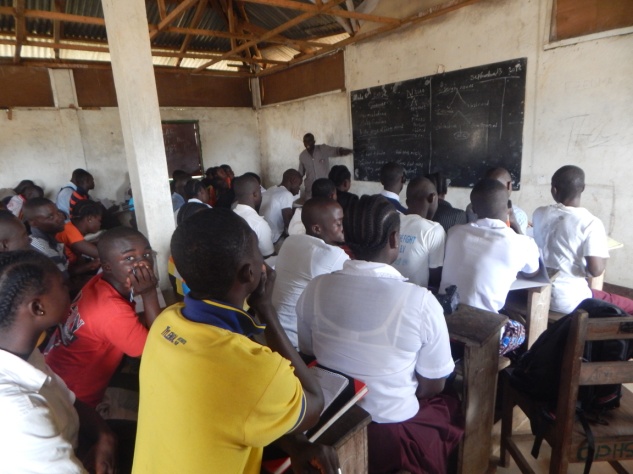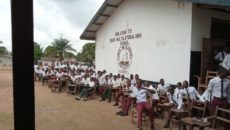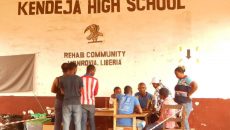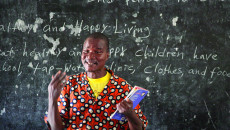With communities still suffering the crippling effects of civil war extending over decades, the Ebola outbreak hit our country with unrelenting severity. It was in the midst of this unprecedented crisis that I took the helm of the Education Ministry in Liberia in 2015. Thousands had died and schools had been closed for almost a year. I knew that we couldn’t continue to do the same things we had always done and expect better results. Collectively, we had to face our challenges head-on; I would need to take risks and be disruptive.
Not every country faces the same challenges we faced in Liberia, but a similar challenge faces most of Africa and South Asia. Fast-growing countries with young populations are reaching a critical moment, a tipping point. These countries are in the midst of demographic upheaval — the majority of their populations are less than 18 years old and desperate for knowledge and skills to provide a decent living for themselves and their family. This is the greatest opportunity of our time, though also the greatest challenge. How do we ensure that a high-quality education is available to everyone?
Beyond the Mirage takes this question and provides the frameworks and concrete examples to help education ministers form their strategies and deliver for students. The paper doesn’t pretend to have all the answers, but it does examine efforts like ours in Liberia to highlight the principles that must underlie a successful approach and examines pitfalls and false dichotomies along the way.
Getting the relationship between governments looking for improved learning outcomes and the private sector providing services can be tricky. When we embarked on creating the Partnership Schools for Liberia (PSL), we had no blueprint. As a result, we had to learn quickly and iterate by trial and error. I hope that Beyond the Mirage provides inspiration and helpful tactics for other education ministers facing similar challenges within their education systems.
Among other things, the paper sets out case studies and models for education ministers to create a powerful strategy to improve the quality of education quickly. Most importantly, though, Beyond the Mirage makes clear the vision, courage, conviction, and political will required to get beyond the polemic into the implementation.
While setting up the PSL and determining the optimal regulatory framework, I found that the private sector knows what it wants and is willing to make decisions quickly. The private sector has resources readily available that the public sector doesn’t have. To be successful, the public sector needs to operate in a similar fashion by being clear about what it wants and being decisive in getting there. As the authors discuss, this will often require support — to build capacity, to measure outcomes, to provide accountability, among other things. Mistakes will be made, but the biggest mistake would be to stick with an inadequately resourced and dysfunctional status quo for fear of change.
The demographic boom across Africa and Asia means the time is ripe for system reform to improve our children’s opportunities for meaningful learning. Beyond the Mirage provides a roadmap for action to help political leaders embark on this journey. As I said when launching the PSL in Liberia, to not act now would be to fail a generation of children.
Featured photo by Zeze Ballah



